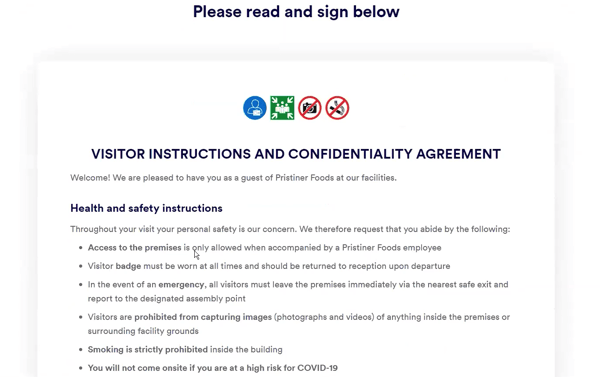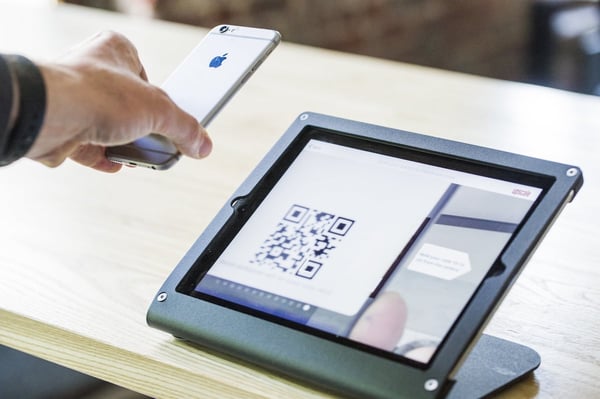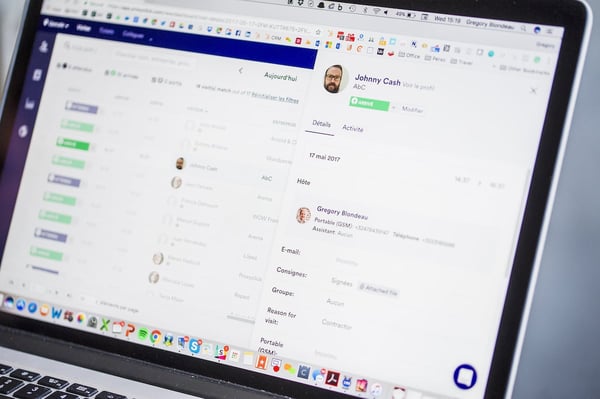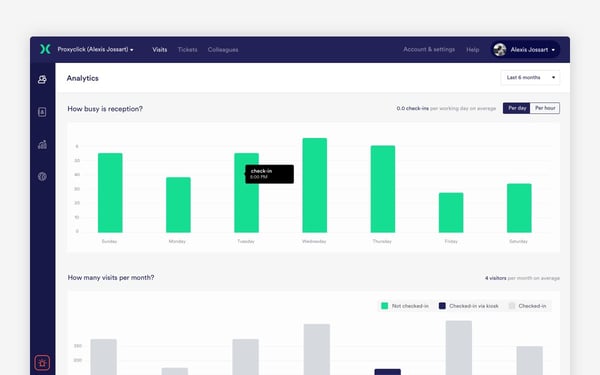How visitor management systems maintain the chemical sector’s health
.png?width=1100&name=chemicals-industry%20(1).png)
COVID-19 is radically transforming our daily lives, having halted all but the most essential services we’ve come to rely on.
In turn, the essential organizations operating through all phases of this crisis—including countless companies in the chemical sector—have faced an extraordinary wave of new operational pressures. And unfortunately, nearly half of those companies admit they’re finding themselves woefully unprepared for the emergency at hand.
Though it’s not all grim.
While most experts agree that this global pandemic won’t be ending anytime soon, through diligent preventative measures (such as the many social distancing and shelter in place directives mandated by governments across the globe), an increasing number of core businesses are being given the opportunity to carefully reopen their doors and adapt to the emerging norms of today’s COVID-19 workplace.
But as companies move to resume operations, it’s imperative that they maintain future business continuity and learn from the mistakes that let so many get caught off-guard by COVID-19’s arrival in the first place.
Why the chemical industry needs visitor management systems during COVID-19 and beyond
Though largely disrupted by the onset of COVID-19, the essential chemical sector is striving forward to meet emergency demands.
From developing key components for pharmaceutical disinfectants and biocides, to constructing the very fabrics used in medical face masks and personal protective gear, it’s fair to say that the need for a strong chemical sector during a pandemic is obvious.
But like it or not, due to this virus we’re entering a different kind of world. To navigate it best, companies in the chemical sector must adopt the tools and technologies that allow them to best address the vulnerabilities COVID-19 exposed, as well as those that have yet to reveal themselves.
Employing Internet-of-Things technology and integrated systems to seamlessly connect cloud-based software and on-premise hardware, good visitor management systems do all that their name implies and much more, making them an indispensable tool for conducting safe business during an epidemic.
To that end, here's how the chemical sector can use visitor management systems during and after a health crisis. (See the benefits of visitor management to other essential industries in our series of articles on food manufacturing, logistics, industrial manufacturing, data centers, and pharmaceuticals).
1. Vet essential visitors before they come on the premises.
If you're welcoming essential contractors, customers, or other guests to your premises, ensure they have the information they need before they arrive. Via an invitation email, send NDAs and health and safety agreements in advance, as well as specific instructions on what to do once on the premises (i.e., where to go for temperature checks).
 Take this process one step further with Proxyclick's latest remote registration features.
Take this process one step further with Proxyclick's latest remote registration features.
In response to customers' needs during this crisis, Proxyclick is currently beta testing a full remote registration process whereby:
- The host sends the visitor an invitation email with all necessary on-site information included.
- A second email with a link to register remotely is automatically sent to the visitor.
- By following this link, the visitor can watch health and safety videos and complete a risk assessment questionnaire before their visit.
- If the visitor answers questions that indicate health risk, they will be informed about a denial of access to the building. A security alert will also be sent to the host. The visitor will also be able to contact hosts directly following this process.
- If the visitor answers questions that indicate no risk, they will be granted access via a QR code sent by email. They can scan this QR code at iPad kiosks or access control entryways upon arrival.
(To learn more about this beta program, book a demo with our team.)
2. Ensure as little person-to-person contact as necessary with a touchless check-in process on site.
As previously mentioned, social distancing and other mindful measures have played a key role in reducing COVID-19’s spread and have proven effective enough for more of the commercial sector to begin reopening.
But we’re nowhere near the point where these preventative safety steps can be relaxed quite yet. To keep populations and contact risk low, visitor management systems allow for an entirely touchless check-in process by:
- Having visitors complete the above-mentioned remote registration (beta) process above. If granted access, they can scan their unique QR codes without touching hardware at front desk kiosks and integrated access control systems like turnstiles and doorways.

- Opting to remove tablet kiosks from lobbies to minimize touching of hardware, and instead having front desk staff use the desktop version of Proxyclick to ask any necessary questions at check-in.

3. Minimize the potential spread of disease at facilities.
Preventing the spread of infection entails more than just reducing on-site personnel down to essential staff. It also requires companies to modify the daily processes at each of their facilities to avoid further chances for exposure.
From addressing any surfaces that may be easily contaminated, to enforcing best practices that keep employees apart and mindful of one another while at work, nothing can be overlooked.
It might all sound overwhelming, but visitor management systems do much of the heavy lifting.
For instance, team organization tools can be integrated with visitor management solutions to help best divide employees into shifts that avoid unnecessary contact. Meeting room management tools allow for a better understanding of who is holding meetings and how many people are allowed access in a given room to help enforce social distancing measures.
Access control integrations at turnstiles, doorways, and elevators, also ensure that only authorized, essential personnel can access specific areas of the building with a unique QR code, during certain times of day.
4. Know exactly who is on the premises at all times, and instantly send follow-up health and safety alerts.
Even when every precaution is taken, surprises are still bound to happen.
The right cloud-based visitor management system will allow your organization to track in real-time every individual that arrives on site.

If you learn that a visitor was at risk of infection weeks after their visit, you can instantly find and extract their contact information to inform them. Organizations have the duty of care to inform individuals of possible virus exposure on site.
5. Comply with standard industry regulations.
While it's important to track visitor data within your visitor management system in case of health emergencies, complying with data privacy regulations like GDPR, CCPA, and APPI remains absolutely crucial. To assist in data privacy and security compliance, solutions like Proxyclick allow for sensitive personal or health data to be automatically deleted after a specified number of days.

In addition, visitor management systems help you attain other important certifications like the Customs-Trade Partnership Against Terrorism, or C-TPAT, which helps businesses safely grow their supply chains while increasing border security. (Learn more about how Proxyclick aids regulatory compliance here).
Staying adaptable in the future
COVID-19 is shaping the world of commerce, and even societies, in entirely new ways.
The expectations of tomorrow’s consumers are going to look wildly different than those before the pandemic hit, and the level of preparedness that organizations maintain for the future is going to come under a lot more scrutiny.
This latest crisis has shown the world that old standards weren’t enough. Industries of all kinds must stay on top of the best technologies and most reliable practices in their field.
All that remains to be seen is which companies best adapt to this evolving standard and thrive.
If you’re interested in learning more about how solutions like Proxyclick can help businesses in essential industries right now, check out our full essential industry blog series.


